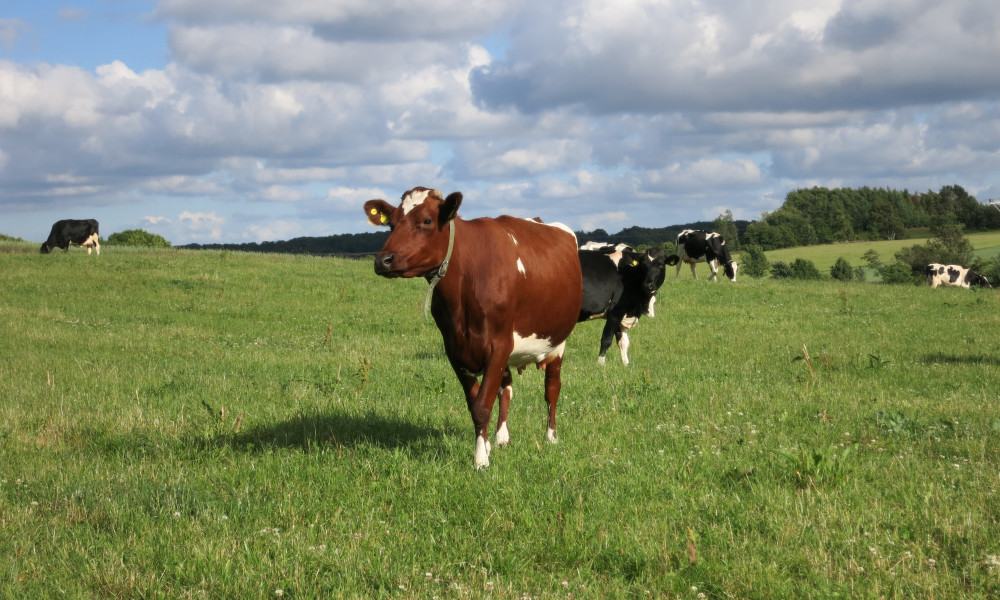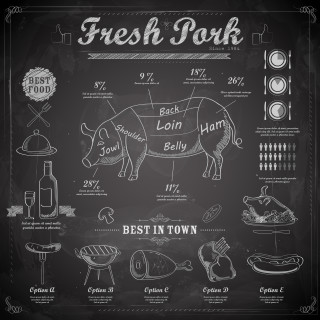The next cash cow
Certain cows’ milk is excellent for cheesemaking, whereas others’ is considerably less suitable. This has been shown in a new thesis from Lund University. The findings could possibly lead to certain cows’ milk being used entirely for cheese, and others’ milk for drinking milk.
“No one knew this. At present, consideration is only given to the nutritional content and quantity of milk that different breeds of cow produce”, said Marie Paulsson, Professor of Dairy Technology and PhD supervisor of Frida Gustavsson, who wrote the thesis. Today, cheesemakers do not differentiate between different types of milk – all types of milk are combined at the dairies. In order to make the milk coagulate, rennet is added. After half an hour, the gel that forms is cut into cubes that are processed and pressed to make cheese. Frida Gustavsson’s results show that a whole 18 per cent of the common Swedish Red breed (SRB) that were tested in the study gave milk that had not coagulated after 40 minutes. The risk with mixing in such milk is that it can have a negative impact on both the cheese structure and the cheese yield. It is particularly important to maximise yield in cheese production, because 100kg of milk only produces 12kg of cheese. Milk genomics is the study of how cows’ genes affect milk composition and properties. This enables milk production to be improved through controlled breeding.
“My results show that there are genes that control coagulation properties, and that these vary both between breeds and between individual animals within the same breed. Certain DNA profiles are simply better suited than others”, said Frida Gustavsson, who has taken blood samples from 400 cows in order to match their genome with the coagulation properties of their milk. Genetic variants of milk proteins can function as biomarkers for the suitability of the milk for cheesemaking, but there are also other genes that affect the cheesemaking properties of the milk. This information could be used in breeding to improve the milk. Since there can be major variations among SRB cows, this suggests that it is possible to improve the coagulation properties of SRB milk through breeding. In a comparison with Danish cattle breeds, the milk from Jersey cows proved to be better suited for cheesemaking. If specialised cows are not desired, an alternative could be a universal cow that is healthy and produces a high milk yield with the right fat and protein content and the right coagulation properties for cheese production.
“An advantage of instead having cows that are suited to cheese production is that farmers who live close to a creamery can have cows that guarantee high-quality milk for cheesemaking. This simplifies the logistics. Better knowledge of the cows’ genes could benefit farmers’ profitability and dairies’ production levels, as well as reducing environmental impact because the cheese production process would run more smoothly.” In the view of Frida Gustavsson, this could happen with the help of well-organised breeding programmes that take into account both the diversity of the Swedish cattle breeds and the health of the cows. With the progress in genomic selection, it is no longer necessary to wait until the animal or its offspring has started to produce milk in order to know its qualities. A blood sample and a comparison with the most favourable DNA profile for cheese production could give a farmer the possibility of having cows that guarantee high-quality cheese milk within a few years.
Text: Kristina Lindgärde
Published: 2014




